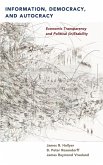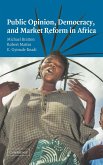Appearing against the backdrop of Jordan's remarkable levels of authoritarian stability and accounting for Jordan being one of the highest recipients of US and European 'democracy promotion' funding, Promoting Democracy, Reinforcing Authoritarianism examines what external 'democracy promoters' actually do when they promote democracy. By examining why Jordanian authoritarianism is so stable, not despite but in part because of external attempts at 'democracy promotion', Benjamin Schuetze demonstrates the depth of Orientalist attitudes among 'democracy promoters'. In highlighting the undermining of democratic values as they become circumscribed by the free market and security concerns, Schuetze suggests that although US and European policy in Jordan comes under the cloak of a universal morality which claims the surmounting of authoritarianism as its objective, its effect is not that different to traditional modes of imperial support for authoritarian regimes. As a result, this is a vivid illustration of what greater US and European policy presence in the Global South really means.








